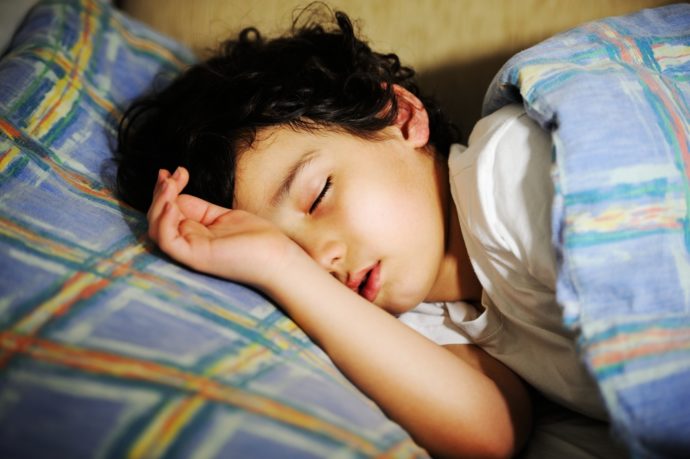Getting enough sleep is critical for children and teens, but bedtime struggles for parents are real, especially now that school is back in session. Most kids—especially teens—don’t come close to getting the recommended 8-10 hours of sleep they need every night. Their sleep is being stolen by a perfect storm of interruptions, including loads of homework, extracurricular activities, and constant distractions caused by their digital devices.
But by developing and encouraging a few healthy habits, parents can help their students vastly improve their sleep schedule, says student wellbeing activist David Magee.
“Sleep-deprived brains struggle more than well-rested brains,” says Magee, author of Things Have Changed: What Every Parent (and Educator) Should Know About the Student Mental Health and Substance Misuse Crisis. “With all the obstacles children face today, they need to feel their best to perform well academically and to thrive in other ways. Getting enough sleep is a big part of that.”
Students who don’t get enough sleep may have trouble concentrating in school and may display a roller coaster of emotions and impulses, including angry outbursts. They also have a higher risk of obesity, diabetes, injuries, and poor mental health. Lack of sleep increases the risk of anxiety and depression, which carries other risks. Children suffering from mental health disorders are more likely to self-medicate through substance abuse.
“Children have several factors threatening their wellbeing—including a fentanyl crisis and rising rates of suicide and suicide ideation. Sleep deprivation can make things worse,” says Magee. “Parents can’t underestimate the benefits that a good night’s sleep can have on improving their student’s overall wellbeing.”
Promoting student wellness is a personal mission for Magee, who lost his son William to an accidental drug overdose in 2013. As a speaker in schools and universities, he has engaged with over 20,000 students and 5,000 parents and teachers across the country to discuss student mental health and wellbeing.
Parents play a large role in helping students get the right amount of sleep that they need to thrive. Magee offers parents six tips to help their students get to sleep.
1. Talk to your child about the importance of sleep.
As any parent of kids who don’t want to sleep will tell you, it’s almost impossible to pressure your child to go to bed, says Magee. Instead, start an open and ongoing conversation about the importance of getting enough sleep. More than a third of all teens get only five to six hours of sleep a night. A candid discussion about the consequences of not getting enough sleep is far more likely to get through to them than a lecture.
Actually, adds Magee, it’s best to put sleep in context with other wellness habits they should be mastering.
“Children crave joy more than anything else,” Magee says. “Unfortunately, many of the dangers threatening children—like drugs, alcohol, and mental illness—rob them of that joy. Young people need a ‘toolbox’ of healthy habits to help steer them toward joy and away from anxiety, depression, and substance misuse. In addition to sleep, children should prioritize daily exercise, quality time with family, mindful smartphone and social media use, and faith in something bigger than themselves.”
2. Help them choose a healthy bedtime.
“Let your child be part of the bedtime discussion,” says Magee. “Listen to your child’s thoughts and work with them to find an appropriate bedtime together. Be willing to compromise a bit, if necessary, but ensure that you land on a time that works for everyone and ensures they get the recommended amount of sleep.”
3. Identify their sleep obstacles.
Think about the obstacle that are causing your child to not get enough sleep. Are they drinking caffeinated drinks with dinner or in the evening? Do they watch overly stimulating television shows or play video games right before bed? Does the blue light emitting from their smartphone, which suppresses the sleep hormone melatonin, keep them wired long past bedtime?
Examine these typical culprits and ask your child what they think is preventing them from getting tired and falling asleep. Then establish some guidelines that help the feel sleepy at the appropriate time.
4. Remind them to keep the phone and the laptop away from the bed.
Emphasize that the bed is for sleeping, not for social time or doing homework. If your child doesn’t already have a space in the home to do these things, help create a space for them. Set up a desk in a spare room or choose a spot at the kitchen table for schoolwork. When it’s time to sleep, all devices should be stored elsewhere for the night.
5. Explain that poor sleep could contribute to substance abuse.
A University of Buffalo study found a clear association between alcohol and marijuana use and sleep deprivation in high schoolers. The study also found that teens with substance misuse tendencies use more when they are tired—sleep deprivation and substance use feed off each other. Explain to your student these connections and help them understand that being healthy as avoiding substance abuse includes getting enough sleep.
6. Think carefully about their extracurriculars and academic course load.
Students today face pressure from all sides to achieve and succeed. Often this is driven by a need to build up their resumes so they can get into the “right” colleges. Many load up on honors and AP classes and join any number of sports teams, clubs, and service organizations. Unfortunately, overpacked schedules take a toll. Besides robbing them of the sleep their brains and bodies need, putting too much pressure on them can be harmful to their mental health.
“Yes, academic success matters, but it’s also critical that your child’s mental health is intact,” says Magee. “Think carefully about what your child can handle and make sure they are part of the conversation before filling up their schedule. If they are struggling, you might help them choose to cut back a bit on activities or take a lighter course load next semester.”
The Bottom Line
Students are able to face life’s challenges better with more sleep. They will perform better academically with adequate rest, but more importantly, sleep improves their overall mental health – and that can make a huge difference in every aspect of their lives.
“The new school year is the perfect time to have the sleep talk with your children and try a new sleep routine,” said Magee. “The health habits they form now will serve them well for the rest of their lives.”
Dottie DeHart is a media specialist from Hickory, N.C.





